CBD gummies have exploded in popularity thanks to claims they deliver the anxiety-easing, pain-relieving effects of cannabis without the high. But unscrupulous companies are cashing in with shady free trial offers and false advertisements galore.
- Overview of CBD Gummy Scams Exploiting Wellness Trends
- The System CBD Gummy Scammers Use to Defraud Buyers
- The Fake Celebrity Endorsement Tactic Ensnaring CBD Gummy Buyers
- No Shark Tank Investor Has Ever Endorsed a CBD Gummy Product
- Jennifer’s Story: Duped by a Fake Shark Tank CBD Ad
- What to Do If You’re A Victim of a CBD Gummy Scam
- Frequently Asked Questions to Avoid CBD Gummy Scams
- The Bottom Line on Avoiding CBD Gummy Scams
Lured in by promises of feeling more relaxed, focused, and calm, countless consumers looking for CBD’s benefits have fallen into traps leaving them with overdraft fees instead. It’s time to expose the massive CBD gummy scam industry hiding behind fake news and celebrity sites.

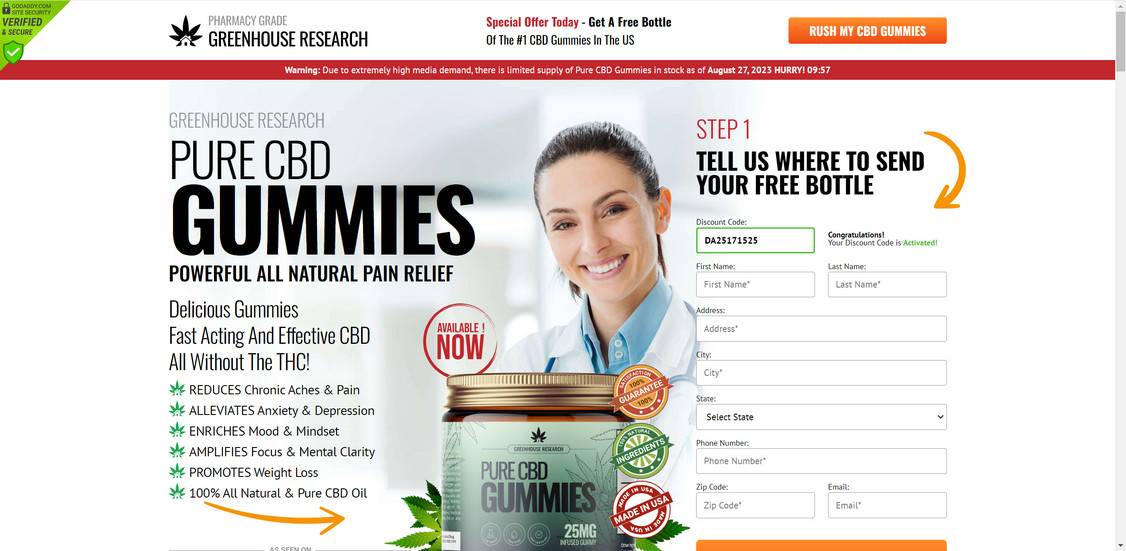
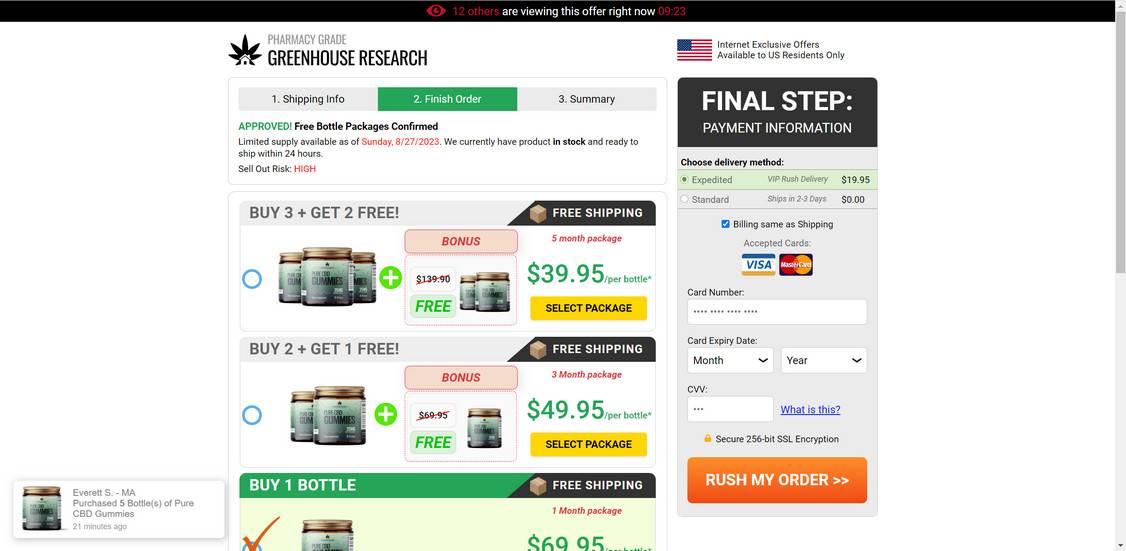
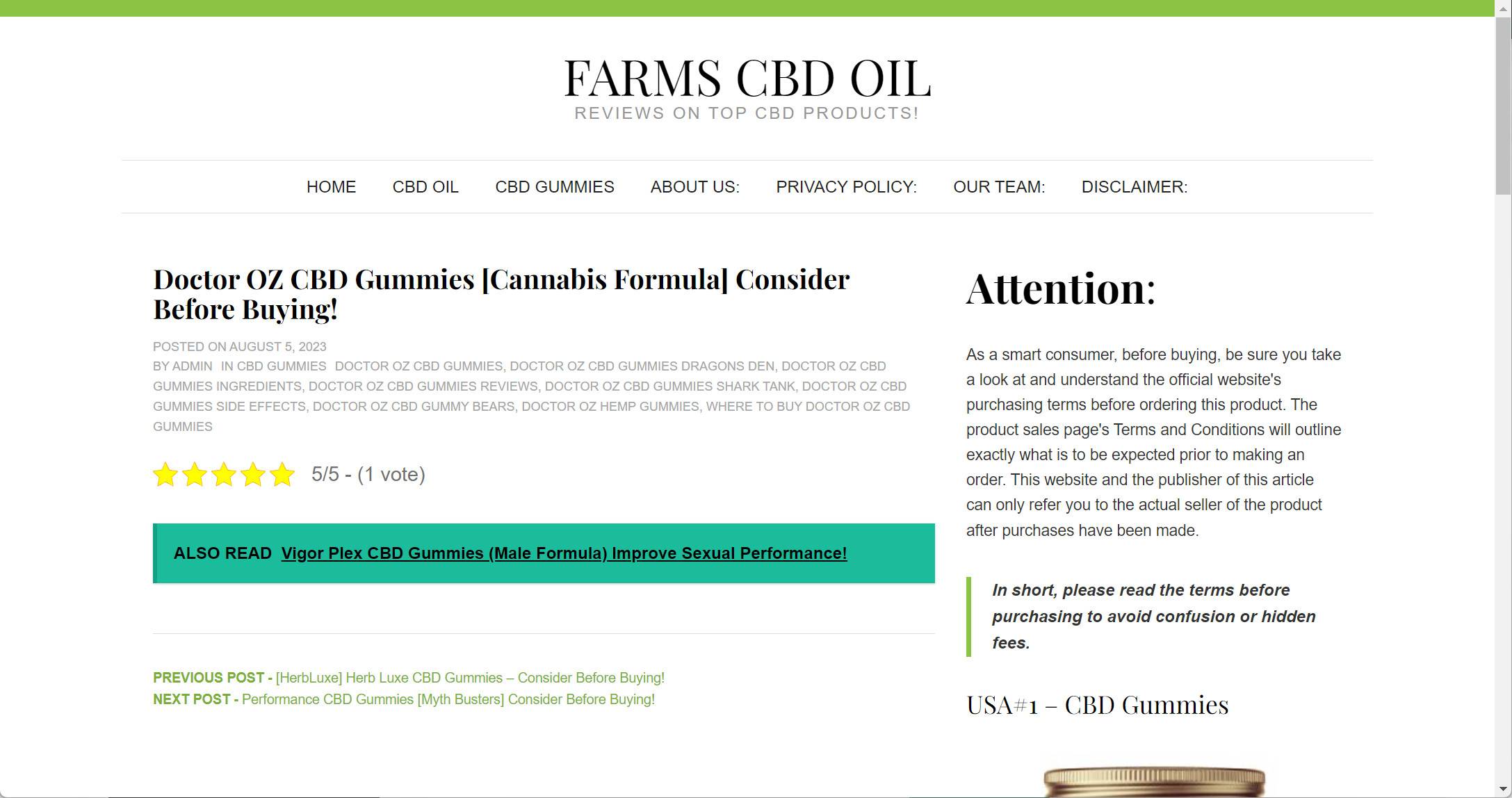
Overview of CBD Gummy Scams Exploiting Wellness Trends
CBD gummy scammers follow a predictable formula: plaster the internet with “miracle” effects for pain, anxiety, sleep; make up testimonials; use doctored videos of celebrities endorsing; and enroll customers in expensive monthly subscriptions without consent.
Their CBD gummies likely contain little to no actual CBD. But their billing practices contain lots of sneaky credit card charges. Don’t get duped by CBD scammers’ slick schemes to cash in on this unregulated industry.
Why Scammers Love CBD
As CBD exploded based on initial evidence of health benefits, a Wild West marketplace emerged. With limited regulations, making and selling CBD became easy. And desperate customers provide easy marks.
Scammers can say anything about their CBD gummies without repercussion. Claiming gummies will cure every health problem under the sun leads the vulnerable and gullible to buy in droves. Even subtracting refunds and returns, massive profits flow to these CBD con artists.
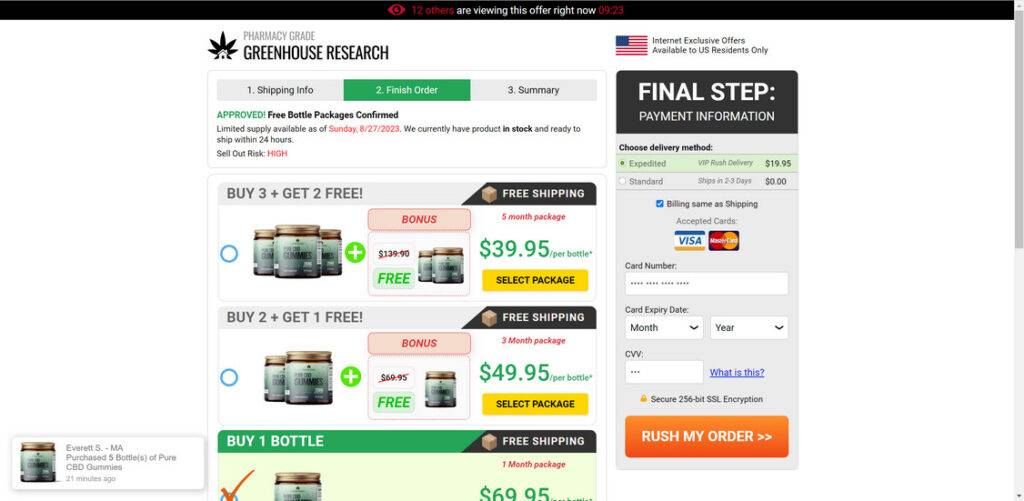
Recurring Tricks and Tactics in CBD Gummy Scams
Though individual brands differ, nearly all contain these schemes to scam buyers:
- Using fake celebrity endorsements and doctored videos
- Dangling free trials requiring just shipping fees to hook customers
- Charging monthly for autoship subscriptions not agreed to
- Refusing refunds and making cancellation difficult
- Removing negative reviews and feedback
- Anonymity of real company owners
- Rebranding fast after bad publicity
Each tactic aims to keep the money flowing in and complaints silenced. Their playbook carries on because consumers haven’t gotten wise to the consistent red flags.
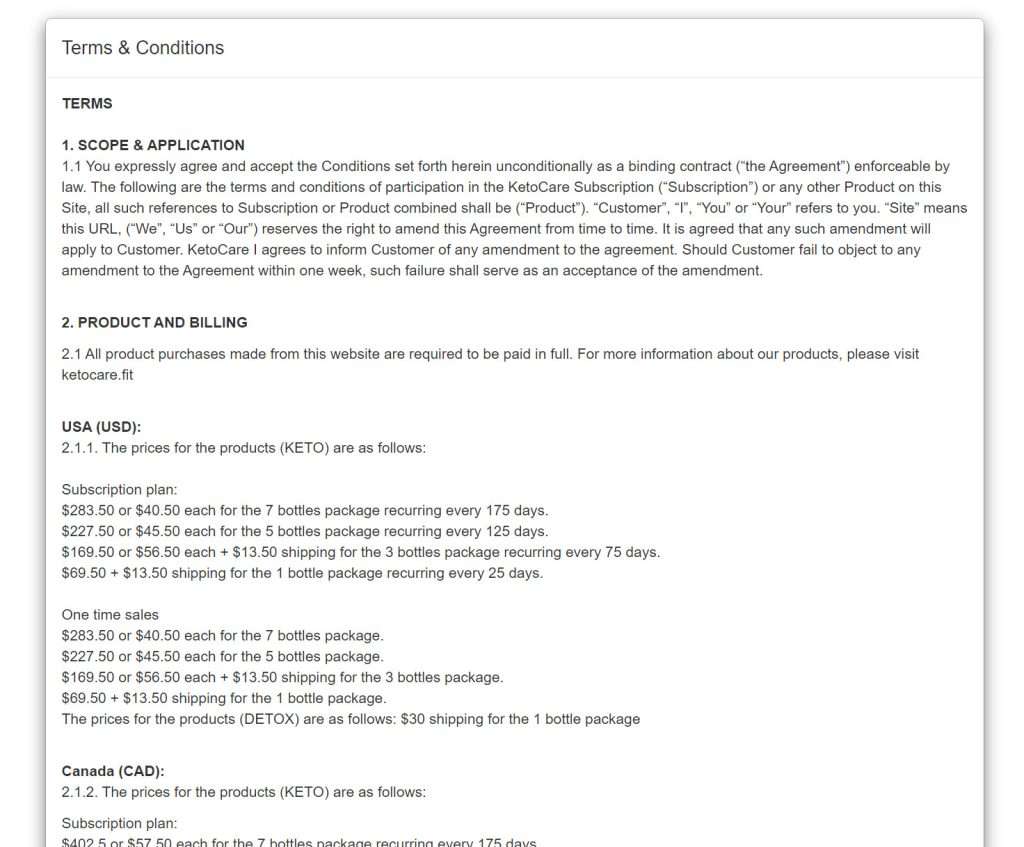
The Damaging Impacts of CBD Gummy Scams
Beyond losing money, CBD gummy scams can seriously hurt people:
- Invalid ingredients and dosing adds health risks
- Stolen bank account funds creates financial havoc
- Lack of actual CBD provides no benefits
- Scams deter people from trying CBD legitimately
- Reputational harm to valid CBD companies
The scammers don’t care who gets hurt. They laugh all the way to the bank after running the same playbook on the next hot wellness trend. But consumers can get justice through awareness and action.
Why CBD Scams Proliferate
Despite their harms, several key factors allow CBD scammers to keep operating unimpeded:
- Lack of regulations over supplement advertising claims
- Difficulty prosecuting anonymous owners
- CBD’s popularity makes it irresistible to schemers
- Shame and fear of admitting being scammed
- Failure to vet celebrity endorsements
- Willingness to believe claims matching desires
Until systemic gaps get addressed, new CBD scams will always emerge to dupe the vulnerable chasing pain relief and calm. But we can all stay vigilant and push for accountability.
The System CBD Gummy Scammers Use to Defraud Buyers
CBD scammers rely on a proven formula to successfully siphon millions from unsuspecting consumers desperate for pain relief, calm, and sleep. By understanding their deceptive playbook, we can recognize red flags before getting trapped. Here is an in-depth explanation of the six stages comprising their CBD gummy scam system:
Step 1: Hook With Fake Celebrity Endorsements and Testimonials
The first step aims to win your trust quickly through familiar faces and compelling stories. Scammers create internet ads and video content falsely claiming Oprah, Tom Hanks, Kelly Clarkson and other celebrities endorse their specific CBD gummy brand. Doctor Oz and popular TV hosts also get used often.
AI-generated voiceovers sounding eerily accurate detail theExact wording aims to build excitement, with phrases like “the only CBD that helped my joint pain” or “the most powerful CBD I’ve tried.” Some ads employ imitation news sites and TV logos to appear journalistic.
To further manipulate buyers emotionally, before/after photos and incredible testimonials depict people whose severe conditions were all totally alleviated through taking the promoted CBD gummies. However, investigation reveals the photos as cheap stock imagery anyone can buy online. The testimonials remain completely fabricated.
Step 2: Overstate Health Benefits to vulnerable demographics
Riding the wave of trust generated by celebrity connections and remarkable stories, scammers use their sales pages to make exaggerated claims about treating nearly every health condition imaginable. Websites emphatically state their CBD gummies will relieve issues like:
- Chronic pain
- Arthritis
- Inflammation
- Anxiety
- Migraines
- Seizures
- Alzheimer’s
- Parkinson’s
- Cancer
- Hypertension
- Skin conditions
- Digestive disorders
By casting an impossibly wide net, scammers know individuals struggling with any of these will get lured in by the promised cure-all. And fear of missing out on relief overpowers critical thinking.
Step 3: Lower Buy-In Cost With Trial Offers
Despite worthless ingredients, scam CBD gummies can cost up to $70 per bottle. So scammers instead eliminate upfront sales barriers by enticing customers to “try before you buy” via free or heavily discounted trials just requiring around $5 shipping.
This hooks bargain seekers while allowing scammers to acquire credit card information. Hidden terms in the small print sign up buyers for costly monthly shipments. Vague language provides cover when victims later complain they never agreed to ongoing billing.
Step 4: Ensnare Victims in Recurring Monthly Charges
When the first bottle arrives, victims get surprised the next month by another shipment charging their cards around $90 more without additional consent. Emails confirming this “subscription” depict it as an agreed-upon VIP membership with additional savings for loyalty.
In reality, shady terms boxed users in during sign up enables this autobilling to continue monthly until navigating an opaque, frustrating cancellation process. Since banks must honor charges from an authorized merchant, victims struggle to halt the unwanted recurring fees.
Step 5: Make Cancellation an Impossible Maze
Scammers intentionally create cancellation obstacles course-like in difficulty to prevent subscribers escaping monthly charges. Phone numbers lead to automated message loops, never reaching an actual representative. Emails get ignored while more product ships.
Attempting chargebacks triggers threatening collections notices. But logistically, the anonymously run CBD companies disappear and rebrand frequently to evade accountability. They bank on wearing victims down until giving up.
Step 6: Delete Negative Feedback and Rinse Repeat
Those who do persevere getting refunds and sharing their scandalous experience online get thwarted by scammers removing negative reviews and comments. Before the BBB or other watchdogs catch up, they shift to a fresh new CBD gummy website and start over.
Ruthless efficiency allows these scammers to regularly bilk consumers while avoiding consequences. Only by understanding the game can users avoid getting played.
This inside look into CBD gummy scammers’ step-by-step system reveals calculated psychological manipulation relying on celebrity faith, tempting claims, and obscured terms. Each component works in tandem to financially exploit vulnerable dreamers and maximize ill-gotten gains before inevitably cycling to a new scam.
Consumers should approach outlandish CBD health claims and free trials with extreme caution, as well as disregard any endorsement seeming too remarkable to be true. Checking ingredients, independent reviews, company track records, and physician guidance protects against falling for these recurring tricks. An ounce of prevention still proves worth a pound of cure.
The Fake Celebrity Endorsement Tactic Ensnaring CBD Gummy Buyers
Perhaps the most insidious tactic used by CBD gummy scammers is manipulating social media ads to falsely imply credible celebrity endorsements for their products. Using AI voiceovers and deepfake video technology, they target anxious and pain-ridden consumers where they’re most vulnerable – Facebook, Instagram and Tiktok.
CBD Gummy Scams Love Pretending “Shark Tank” Love
The biggest fake endorsement trend seen is implying investment or praise from entrepreneurial TV show Shark Tank through doctored videos. Mark Cuban, Kevin O’Leary, and other investors appear discussing or showing dramatic before/after photos from using specific CBD gummies.
Make no mistake – these are complete AI fabrications. Yet they portray a strong endorsement using familiar faces CBD buyers trust. The real investors have all disavowed these deepfakes yet new ones keep cropping up.
Other Celebs and Influencers Get AI Endorsements Too
Beyond Shark Tank, scammers create deepfake social media ads showing Dr. Oz, Ellen Degeneres, Oprah Winfrey and more recommending their CBD gummies. Voices sound eerily accurate praising anxiety relief and pain reduction from using the products.
Influencers also get their likenesses used to target younger demographics on Instagram and TikTok. But every single case is an AI-generated, unauthorized fake. No actual famous figures have endorsed these scammy CBD brands.
The Goal: Trick Buyers Into Visiting Sales Pages
These deepfake social media ads aim to steer viewers to the CBD gummy brand’s website, which overflows with more manipulation tactics. Fake transformational photos, reviews and free trial offers create a complete illusion of legitimacy and value.
The celebrity angles provide the initial bait, building enough trust so buyers hand over credit card information without adequate scrutiny. This exposes them to recurring subscription fees for ineffective gummies.
The next time you see a miraculous CBD pill ad supposedly endorsed by a celebrity, maintain the highest skepticism. Verify the claims completely outside that seller’s website before making any purchase to avoid the latest CBD gummy scam. Your financial and emotional health depends on wariness.
Here is a section addressing the common scam of using fabricated Shark Tank endorsements for CBD gummies:
No Shark Tank Investor Has Ever Endorsed a CBD Gummy Product
Through devious use of deepfake technology and AI-generated audio, scam CBD companies produce slick video ads making it appear Mark Cuban, Kevin O’Leary, and other Shark Tank celebrities are touting specific CBD gummy products. They call them “revolutionary” or “a CBD miracle”.

Let me be absolutely clear – none of these endorsements are real. They are manipulated footage and audio designed to mislead consumers by exploiting the reputation of Shark Tank stars for deceptive gain. The investors themselves have confirmed zero involvement with any CBD gummy schemes.
Yet the fakes keep coming, often hosted on imitation news sites and YouTube channels, and spread across social media. They frequently claim ridiculous benefits like “a Shark Tank CBD miracle ends pain overnight” or “Sharks in tears over CBD’s dramatic anxiety cure”.
I assure you, it’s all 100% fabricated. The Shark Tank stars have no CBD gummy investments, nor have they ever endorsed any. Please remain vigilant against these celebrity-exploiting CBD scams – they only want to separate hopeful consumers from their money.
Authenticity matters when evaluating health products. Do your due diligence beyond any singular source. When a CBD offer seems too remarkable, make sure real evidence from impartial sources backs it up before buying. And know that no genuine expert would tell you to ignore your doctor’s advice and buy CBD gummies that magically cure everything. Empower yourself against false promises.
Jennifer’s Story: Duped by a Fake Shark Tank CBD Ad
Jennifer, a busy mom of 3 kids, emailed me about how she ended up $500 poorer after falling for a CBD gummy scam that used fake Shark Tank celebrity endorsements and an ensnaring “free trial” offer. Here is her cautionary experience in her own words:
“While scrolling Facebook, an ad popped up with all the Shark Tank investors talking about a CBD gummy that helped with pain relief and anxiety. It looked 100% real. They kept saying how it was revolutionizing CBD and how they were impressed with the results. The ad said the gummies were being offered for a free trial, just pay $4.95 shipping.
I’ve tried other CBD brands with mixed results, so I thought maybe these celebrity-backed gummies would be more pure and effective. I went ahead and ordered the trial bottle. But a month later I had a charge on my card for $89 – the ad never mentioned signing up for monthly payments!
I tried to call and email the company but never got an answer back. After $500 in unauthorized charges, I finally had to get a new debit card through my bank to make it stop. Now I realize it’s a scam using fake Shark Tank CBD ads. I feel so foolish I fell for it, but it seemed so real and trustworthy with those familiar faces.”
Stories like Jennifer’s are all too frequent with the CBD Wild West landscape enabling scammers’ tactics. Legally and financially, one must protect themselves when companies refuse to. Share your own story to help others avoid this misery.
What to Do If You’re A Victim of a CBD Gummy Scam
Finding out you’ve been scammed prompts feelings of violation, shame, and powerlessness. But taking action quickly can help you gain control. Follow these steps:
Report Fraudulent Charges: Call your credit card company and bank to report the charges as unauthorized and fraudulent. Provide them details on the deceptive claims and billing practices made by the CBD seller. Move quickly to prevent future billing.
Gather Evidence: Compile any order emails, trial terms, contact attempts, product packaging showing no CBD, and other documentation that proves willful deception occurred. This supports your fraud case.
File Complaints: Submit reports to the FTC, BBB, and state authorities detailing the scam. Include your evidence. The more victims who speak up, the stronger the case for regulatory action.
Leave Reviews: Post about your negative experience with the CBD gummy company on third-party review sites. This helps warn other consumers from being similarly deceived.
Consult a Lawyer: If needed, seek additional legal help getting refunds for any unauthorized credit card charges related to deliberately obscured subscription plans and false product claims.
The more voices exposing their tactics, the harder it will be for CBD scammers to keep exploiting the sick and desperate. You can recover from this learning experience.
Frequently Asked Questions to Avoid CBD Gummy Scams
The CBD industry’s lack of oversight has left consumers vulnerable to crafty scammers selling gummies with exaggerated benefits. By addressing the most common questions, this guide provides clarity for spotting and avoiding CBD gummy scams.
1. How can I identify a CBD gummy scam?
Red flags include:
- Claims of extreme benefits unrelated to CBD’s actual capabilities
- Using fake celebrity endorsements and doctored videos
- Requiring credit card for “free” or cheap trials
- Making cancellation difficult and avoiding refunds
- Having no lab testing or verified CBD concentrations
- Removing negative reviews and feedback
- Constant rebranding and name changes
Multiple warning signs should raise scrutiny before buying.
2. What concentration of CBD is typically effective?
Most studies demonstrate benefits from CBD in doses between 10-50mg. Scam gummies often contain far lower concentrations despite labeling otherwise. Quality brands will have third-party lab data verifying CBD levels.
3. Can CBD gummies deliver pain relief?
Early research shows potential for CBD helping mild pain. However, claims of eliminating severe or chronic pain are unsupported. And CBD carries risks at high doses. Beware of gummies marketing themselves as stand-alone pain cures – more evidence is needed.
4. Is CBD regulated for safety and claims?
Unlike pharmaceuticals, the CBD supplement industry has minimal scientific or marketing regulations. This enables scammers to advertise bogus benefits without repercussions. Seek brands adhering to voluntary quality controls.
5. Why do scammers use fake celebrity ads?
By faking CBD endorsements from celebrities like Shark Tank investors or Dr. Oz, scammers know consumers let down their guard and overlook dubious claims. But no major celebrity has actually endorsed CBD gummies.
6. What are free trial offer downsides?
Beware free CBD trials requiring your credit card for a small shipping fee. Shady terms later enroll you in expensive monthly shipments billed automatically until you can successfully cancel. Frequent complaints surround these.
7. How can I stop an unwanted CBD subscription?
Call the company and your credit card issuer immediately requesting total cancellation. Get written confirmation, and monitor your statements for further charges you should dispute. File complaints strategically to establish a strong case against billing scams.
8. Is it possible to get a refund after being scammed?
If charged without consent, file formal disputes with detailed documentation and request refunds from the CBD seller. Escalate to regulatory agencies and legal support if the company refuses to return your money. Act quickly once identifying unauthorized billings.
9. Are there risks to using CBD gummies?
Potential side effects include diarrhea, appetite changes, fatigue, and liver damage at high doses. CBD may also interact with certain prescriptions like blood thinners. Discuss using CBD supplements with your physician.
10. What precautions should I take when trying CBD gummies?
Adhere to serving sizes, research the brand thoroughly, consult your doctor if taking medications, purchase only from reputable sellers, and monitor effects closely. Beware of miracle claims – CBD is not risk-free or a cure-all. Moderation and education is key.
Apply healthy skepticism, check third-party test results, and avoid free trials and exaggerated promises. Then CBD gummies may offer reasonable benefits without falling prey to scammers’ tricks.
The Bottom Line on Avoiding CBD Gummy Scams
With scammers rushing into the CBD space faster than regulations, consumers need to apply careful scrutiny to any gummy or oil claiming to cure everything under the sun. Check lab tests for purity and CBD levels. Seek out customer feedback on independent sites instead of trusting a brand’s own page. Avoid “free” trials requiring credit card information. And recognize that no CBD product treats all conditions – that’s a sure sign of snake oil.
Approach CBD with reasonable expectations, research brands thoroughly, and consult doctors when adding any new supplement. Your elaborate hopes make you prime prey for scammers, so let reality anchor you instead. There are quality CBD providers, but finding them takes work. Never let desperation override skepticism again.



